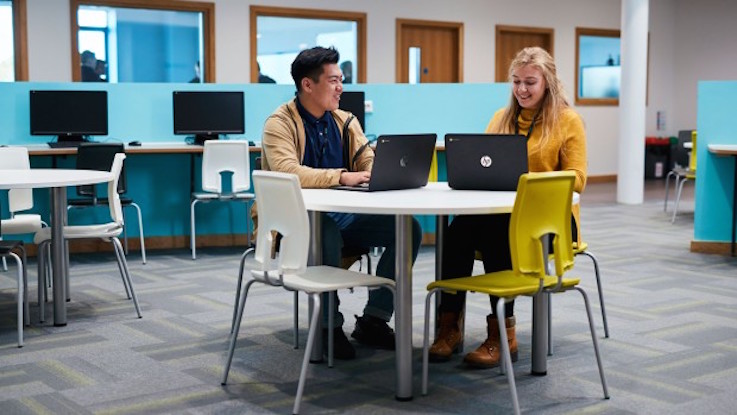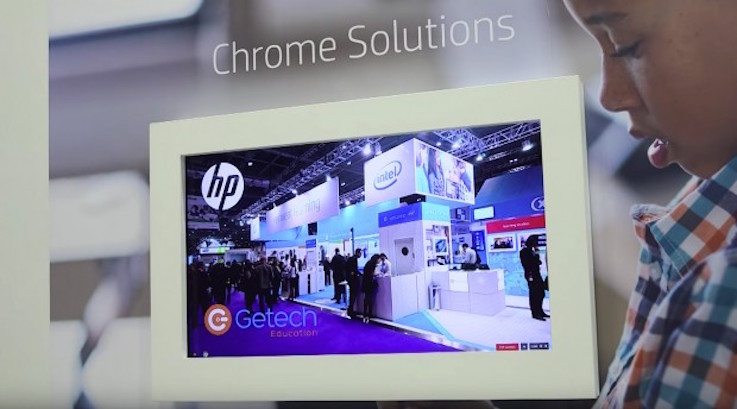Simplifying tech for schools
Chromebooks, Microsoft Intune and more are trying to make it easier for schools to buy and manage technology


Managing a range of tech for hundreds of students on a tight budget isn't an easy task, but IT suppliers are finally looking to make it easier on schools.
That follows Google's Chromebooks, which alongside being low cost are designed to be easily managed, with a refreshed OS every restart making administration easier for schools, especially those without a dedicated IT team.
With Chromebooks gaining in popularity particularly in American schools Microsoft has unveiled its own version, extending its Intune management system to education. Microsoft Intune for Education lets schools manage devices, settings and cloud-based applications while lower-cost Windows laptops from Acer, HP and more aim to counter Chromebooks on budget, allowing schools to stick with the Windows OS they're accustomed to using.
While Intune for Education may seem a simple response to Chromebooks' simplified management, Ian Fordham, director of education at Microsoft UK, said on the sidelines of BETT 2017 that the company was "less concerned with what others were doing and more responding to the grassroots, what the teachers and educators are looking for".
"From a usability perspective, it starts to integrate all the devices with an easy to use interface," he said, which is key as schools face a mix of devices, from mobiles to tablets and laptops and standard desktops. Fordham said the aim is to enable teachers to set up controls and manage devices in a few clicks via the dashboard and make initial deployment easy, particularly when paired with cloud tools such as Office 365.
"The technology now works... and now the usability point on the ground is really important," he said. "How do we make the lives of teachers and educators easier... something like Intune isn't like the Surface Studio, which is super cool, but it's probably more transformational as it takes a lot of the effort out."
The route to simplified technology for schools isn't only at the administration or management side, it's also about how IT suppliers attempt to sell their wares and services, noted HP's education business director, Neil Sawyer.
Sign up today and you will receive a free copy of our Future Focus 2025 report - the leading guidance on AI, cybersecurity and other IT challenges as per 700+ senior executives
HP introduced a programme last year called HP for Education, which covered the costs of software for packages such as Frog, Lego and Microsoft, for schools that bought its hardware, simplifying licensing fees that pinned down schools' budgets eating up as much as a third of available funds. This year, it extended its education laptop and PC warranties to three years, in order to make it easier for schools to plan their hardware renewal cycles, as they can guarantee they'll not have to replace a device for three years.
"We have every confidence in the reliability of the product and schools need the reassurance that those devices are going to be covered... for the typical lifetime," Sawyer said at BETT 2017. "Those kind of initiatives are important for schools and colleges."
He added that IT suppliers need to be better partners to schools, helping them make the right decisions rather than simply trying to sell more products, which has led to "rampant" demand for trendy products such as tablets that only a few years on aren't as well used as hoped.
Now, when Sawyer visits schools, he sees himself as an adviser rather than someone there to "punt HP products". He added: "Vendors, HP included, have to understand what the technology is going to be used for... we need to do a better job of asking the schools what are they using that technology for."
Freelance journalist Nicole Kobie first started writing for ITPro in 2007, with bylines in New Scientist, Wired, PC Pro and many more.
Nicole the author of a book about the history of technology, The Long History of the Future.
-
 European Electronique’s Freedom Cloud
European Electronique’s Freedom CloudSponsored Freedom Cloud helps schools move to a fully managed public or hybrid cloud with educational IT provision
-
 C-Learning puts the "cloud first" in education
C-Learning puts the "cloud first" in educationSponsored UK schools and colleges are only just entering the cloud revolution
-
 Getech Education helps schools move to the cloud
Getech Education helps schools move to the cloudSponsored Taking a school's classroom IT to the cloud needs careful consideration
-
 RM Buzz from RM Education
RM Buzz from RM EducationSponsored RM Buzz adds user-focused filtering on Chromebooks for students using RM Unify and G Suite for Education
-
 BETT 2017: don't drown schools in wave of ed tech
BETT 2017: don't drown schools in wave of ed techOpinion Finding the right tech in the flood of options isn't easy for schools
-
 How teachers brought Minecraft into classrooms
How teachers brought Minecraft into classroomsNews Microsoft and Minecraft reveal new teacher tools for using the game in schools
-
 HP: VR and two-in-ones are the future of ed tech
HP: VR and two-in-ones are the future of ed techAnalysis HP's head of education predicts the future of technology in classrooms
-
 Why fun tech is good for schools
Why fun tech is good for schoolsAnalysis Lego and Minecraft are sweeping education tech – but do they offer more benefit than making school fun?


